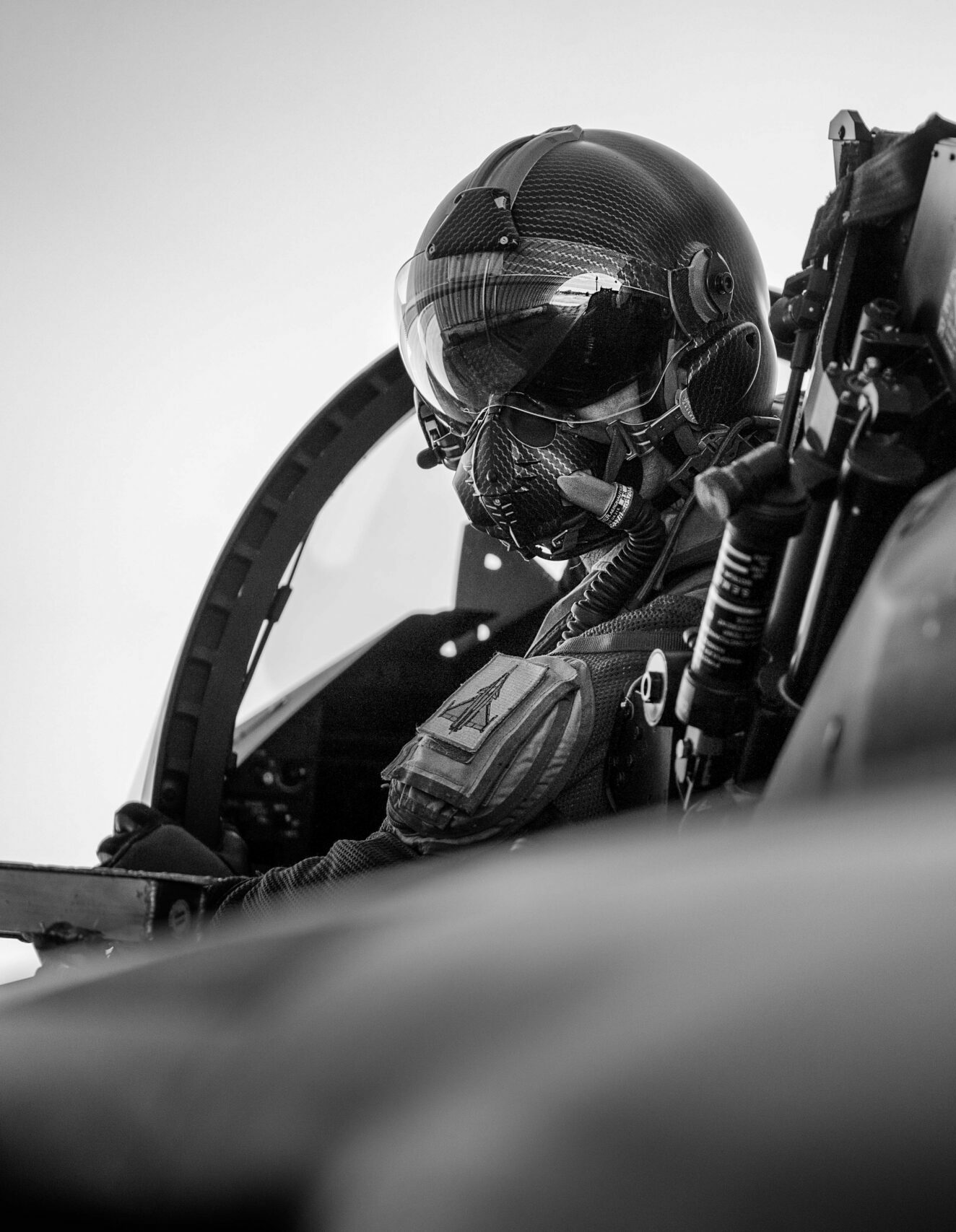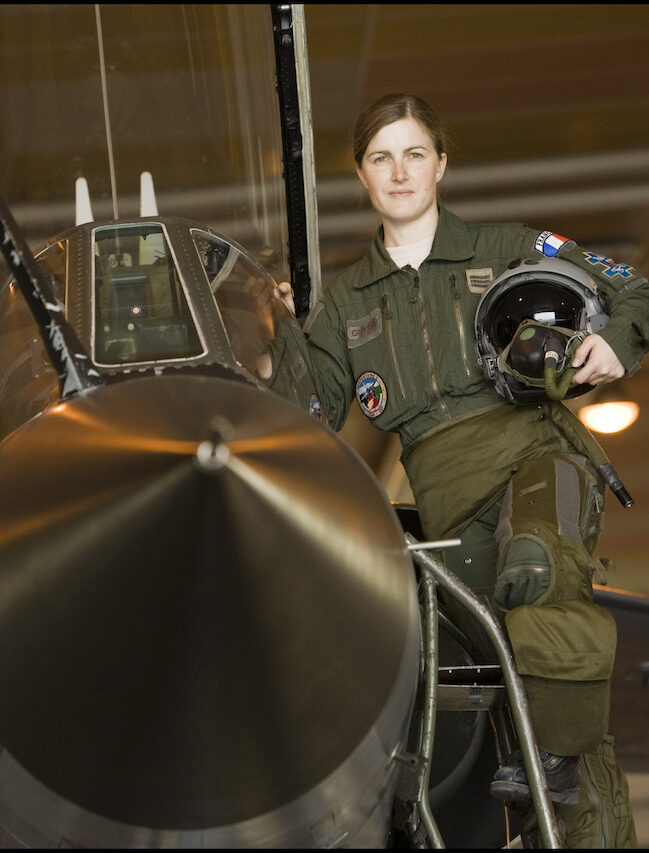 Aerospace and Defense Actors
Aerospace and Defense ActorsAir transport has revolutionized international trade. A large majority of the four corners of the world are accessible by air. The vastness of the planet has thus shrunk into a community of human beings who can quickly and easily share cultures, ideas and much more.
September 27, 2022
Engine start-up. In his comfortable seat, he switches off his phone after a long discussion. It is 10:30 p.m. and in a handful of hours will be the outcome of several weeks of negotiations. The company will be saved and hundreds of jobs preserved. At the same time on the other side of the world, there is a minister who is preparing to go and announce that an emergency plan has just been put in place to support the natural disaster which has ravaged everything on this island in the middle of the ocean.
Air transport has revolutionized international trade. A large majority of the four corners of the world are accessible by air. The vastness of the planet has thus shrunk into a community of human beings who can quickly and easily share cultures, ideas and much more.
The plane has indeed changed the world!
Private aviation allows people to travel to many different destinations like New York, Paris, London, San Francisco, Los Angeles, São Paulo, Moscow, Dubai, Tokyo, Hong Kong, Singapore, Beijing, Shenzhen, Hangzhou, Istanbul and Mumbai... the top 15 billionaire cities. Billionaires who travel by private jet have very busy days and make hundreds of trips a year to attend business meetings or conferences.

The private jet is commonly associated with great fortunes. Often perceived as a vestibule for riches and celebrities. Although this reflects part of the market, it is only a minority. Private aviation has become a solution adopted by another equally important community of users.
Private aviation can be the perfect tool for a variety of situations, the specter of which is all too often overlooked by detractors. It is true that many aircraft are used only by corporate and government officials who travel the world alone in a private jet to secure lucrative deals. But if we take a serious look at the businessmen component, we will quickly realize the number of personnel involved behind a single CEO journey,
Because leaders can circumnavigate the globe in hours, they gain a "glocal" advantage that increases their profits, which in turn creates more jobs.
Essentially, travel can change the course of the daily global economy.
Private aviation offers much more than pure luxury.
Private planes are used by companies, government agencies and other representatives traveling with daily missions to find new opportunities or reach an agreement that can generate millions of new jobs, save jobs and sometimes even save lives, or prevent the termination of a contract or a political conflict.
However, let us agree on one essential thing: Time is the only choice no one can buy. But Business Aviation may save some.

In this blue sky of July, we visited the offices of Boutsen Aviation, rue Grimaldi in Monaco, where we had the honor of meeting Dominique Trinquet, President - Shareholder of Boutsen Aviation, the brokerage company below and founded by Thierry Boutsen.
Dominique's career began like many of us, with a passion for aviation which led him to train as an airline pilot in 1990. Over the next two years he gained invaluable flying experience. While he was based in Paris Toussus-Le-Noble. In 1992 he moved to the French West Indies, where he served as an airline pilot. Upon his return to Paris at the end of 1993, he joined the aviation community and flew as a captain on various jet aircraft. A year later, he decided to expand his experience by working as a sales manager for an aircraft brokerage firm in Le Bourget, France. In 2000, he joined the growing Boutsen Aviation team as a shareholder and sales manager. In 2015, he was appointed President of the company and has held this position ever since.
While Dominique Trinquet leads the majority of Falcon transactions at Boutsen Aviation, the company's listing extends well beyond that. Over its history, it has sold aircraft from 19 different manufacturers out of 150 models.
Since its inception in 1997, the team has sold over 410 aircraft in over 74 countries around the world. Of particular note is the focus and specialization in Falcon transactions, led by President Dominique Trinquet. According to Dominique, about twenty percent of all Boutsen Aviation business is based on Falcons, particularly the 7X model.
When we first met Dominique, we met a man who is not easily impressed, sitting behind his desk in the sunny headquarters of this fine company. He exudes simplicity and kindness. This simplicity and this humility reflect the strong values of a person who has never asked fate for anything; he worked hard for everything he earned: "When you do things with passion, nothing is impossible", he says.
ENAC pilot graduate | Ecole Nationale de l'Aviation Civile - At just 18 years old, in his early teens, he followed his father during his work at the Paris International Air and Space Show, where he found his way by reflecting on his fascination with the evolution of the aviation industry.
“Aviation has often driven some of the global growth in technology. Many high-tech projects stem from the research of aeronautical engineers. The need to have more and more reliable, high-performance aircraft with greater and greater capabilities began in the military field, then quickly spread to civil transport", says Dominique.
Every day, companies strive to conquer new consumer markets with products and services designed with quality and manufactured with the latest technologies. In addition to providing services to customers, airlines offer to improve the quality of life of customers in several ways. Achieving this is about connecting people and continents.
Understanding the human means building strong and stable relationships and maintaining effective communication. In addition to helping companies improve their competitive advantage, it allows them to foster a successful and profitable business.
The key to success in the private aviation industry: in private aviation, you must be strict, transparent and accurate.
According to President of Boutsen Aviation, the key to a successful transaction lies in the points between the sale. Having a knowledgeable and experienced broker is key to building a viable long-term business, "because you don't know what you don't know; it is indeed our knowledge and experience that is most valuable to the client, and we take both very seriously," says Dominique.

The expertise and experience facilitated by an extensive network of partners and suppliers is necessary to ensure that the client and his interests are protected at every stage.
From crucial pre-purchase/pre-purchase inspection to technical, legal and administrative elements, Boutsen Aviation focuses on every step of the transaction process. It starts with the start of the sales mandate to the final transfer of ownership, a process that takes, on average, between six and eight months. The extensive network of highly specific aviation industry technical experts and lawyers is key to expediting the process and bringing it to a successful conclusion. “Our goal is not to be the biggest company, but the best at what we do,” says the CEO of Boutsen Aviation.
Dominique also strongly emphasizes the importance of having a strong and reliable team, and emphasizes how diversity manifests itself through the different work experiences of each team member. Throughout the interview, he was able to name each member of his team and the value they bring to their daily work, Timothée, Laurent, James, Margaux, Benjamin, Laura, Amandine, Atiesh, Timur, Farida, and Jean-Louis. For him, the cornerstone of Boutsen Aviation's years of success is the diversity of excellence evident among the company's members and partners. Its employees and partners are certainly the DNA of the excellence that the company offers to its customers around the world. In fact, Dominique considers them family.
When I ask Mr. Trinquet to describe the common value that everyone in the company shares, he proudly replies, "Everyone is unique and is able to offer their own experiences and knowledge that others may not have. These are natural entrepreneurs, they feel a sense of belonging to the team, they are committed to their work and really care about the success of the business."

Private aviation is the solution for people who cannot depend on certain limitations of commercial aviation.
There are many reasons to fly a private jet, whether it's the need to fly to a country that is not accessible by connecting or direct flight, to optimize time, or even to help certain people with reduced mobility for whom commercial aviation fails.
The availability and visibility of private aviation is booming, and many people have opted to swap first class commercial flights for private jet flights due to the flexibility and customization offered by the service. Unlike traditional flights, private planes are not limited to certain schedules or routes; rather, they are completely flexible in terms of their customers' needs, allowing customers to choose the route and timings they want.
Private aviation allows passengers to make business trips that would be impossible via commercial airlines. This is true for all aircraft sizes – small, light jets like the Cessna Citation Mustang make it possible to have meetings in Brussels, Frankfurt and Zurich in a day while still being home in time for dinner. Who would want to spend their whole life watching their family on video calls because of work? One of the main drivers of private aviation is that it allows individuals to attend important business meetings while still allowing plenty of family time.
Making the most of the time you have.
The variety of aircraft, both in their type, in their size and in their mode of propulsion, makes it possible to adapt to the various needs of their passengers. Reason often decides on the use of suitable devices, the number of passengers or even the distance traveled.
It's easier to justify the premium price of a private jet flight in terms of hours saved, but there's also a case where private aviation allows you to maximize the time you have.
Large continental jets, like the Gulfstream G650, can get you around the world faster than any commercial jet, allowing you to have breakfast meetings in Singapore, business lunch in Shanghai, and dinner in Tokyo.
The added accessibility afforded to private jets is even more of an advantage for travelers wishing to travel to areas of the world that are traditionally not well served by airlines, such as Russia, Kazakhstan, Southeast Asia East or parts of Africa. In such cases, flying on a business jet can literally save several days of travel.
The privacy of a business jet provides the peace and quiet to work without distraction and hold meetings to discuss sensitive information discreetly. To ensure peace of mind and a chosen atmosphere, the aircraft customer has full control over the choice of other passengers on board, including the entire flight crew.
The most luxurious end of the business jet spectrum (large cabin private jets), is made up of a fleet ranging from the Dassault Falcon 7X to the Boeing Business Jet or Airbus ACJ. These planes are large enough to divide the cabin into several sections, accommodating different meeting rooms and several bedrooms and their bathrooms. It is now also possible to install technologies such as television streaming, although the costs can be very high, the aggregated values of the various possibilities in the end justify the investment by automatically increasing the value of the aircraft.
A key factor in the future of private aviation will be the development of new on-board systems. It should be noted once again that business aviation is always at the forefront of the development of cutting-edge technologies and state-of-the-art systems. The extreme requirement of a certain clientele has always been the vector for the development of new technologies never before embarked on board.
Another major development, sustainability is currently at the heart of projects, despite the fact that the global aviation industry is only responsible for 2% of all human-induced greenhouse gas emissions annually. The aeronautics industry is committed to reducing its CO2 emissions by 50% by 2050 compared to 2005 levels. Indeed, business aviation is also betting on more responsible and thoughtful travel by collaborating with the impact environmental rating systems, such as 4AIR, which aims to accelerate the development of global private aviation sustainability efforts. 4AIR offers a centralized platform that facilitates the exchange of carbon offsets to reduce the impact on the climate. This is an important development for a sector often criticized for its carbon footprint but little known to ordinary mortals.

The global economy is slowly recovering from COVID-19 and the severe consequences, this momentum is also benefiting business aviation. Transactions involving new and pre-owned business jets increased by 5.5% in 2021 compared to 2020. The market is expected to grow at a CAGR of 3.6% between 2020 and 2025.
In projection, over the next five years, second-hand transactions represent 79.4% of total transactions, new deliveries represent the remaining 20.6%. Despite the high proportion of second-hand transactions, the relatively higher price of modern aircraft means that new deliveries account for 55% of dollar volume through 2025.
Looking ahead, Thierry Boutsen and Dominique Trinquet are optimistic about the market outlook, not only for heavy jets and airliners, such as the 7X and ACJ, but for all models in their list, which includes light and mid-size jets and turbine-powered helicopters.
"Business aviation has weathered global crises and adapted consistently. Changing market needs have given rise to new models and are redefining the contours of a market that was once reserved for a few insiders, members of the rich club".
Cost savings, privacy, discretion, improved productivity and saving valuable time are the undeniable benefits of private jet travel. For businesses of all sizes, private jet travel can offer advantages that help you achieve your business goals.
However, the time saving remains at the top of the podium. For some, the ability to arrive at the airport a few minutes before takeoff and hit the road as soon as you arrive is priceless. Tedious elaboration is not necessary; private aviation is one of the best time management tools. It increases the hours of productivity to your day.
Like a catalyst for transformation, the health crisis has produced a marked increase in demand for business aviation. Fast and reliable, but above all safer in terms of medical hygiene, it is recognized as a great tool for growth and development.
The question of health safety is indeed more than ever on the agenda and encourages travelers to choose more intimate and protected modes of transport.
Proof of the expansion and success of the private aviation industry, 2,000 airports and airfields in Europe accommodate business jets; 10 times more than airports open only to airliners, offering a valuable variety of destinations.
If, for many travelers, private aviation is synonymous with gleaming jets, caviar and champagne, the reality is quite different. Here, it's a question of flexibility and profitability: as much for companies as for customers. Economies of scale should be taken into account when making comparisons against business and/or private aviation. Saving time is still synonymous with financial gain, but not necessarily for an individual, but often for a company, or even a State.
Indeed, business aviation is no longer a luxury reserved for members of a closed club. It's a real revolution in personalized air transport. It is to long-haul travelers what drones will be to short-distance flights. Business aviation is ahead of its time...
Cheers!
Ana Paula Araujo Mendes
Dominique Trinquet
President - Shareholder of Boutsen Aviation
Logistics and coordination: Laura Kuti
Interview photos: Audran Sarzier

Aerospace and Defense Actors
Dominique Trinquet - The Driving Forces of Private Aviation

Aerospace and Defense Actors
Philippe Pham: Airbus Defence & Space - The new paradigms of the race for the stars

Aerospace and Defense Actors
Michel Tognini: The Astronaut Secret. Strategy, Communication, and Time Management Are Key

Aerospace and Defense Actors
General Damien STRIEBIG: Information Management - How Do You Prepare a Major unit for the Unpredictable

Aerospace and Defense Actors
Gérard Feldzer - Fighting for Peace; A World Without Frontiers

Aerospace and Defense Actors
The New Resilience Paradigm: The Face of the World After Coronavirus

Aerospace and Defense Actors
Virginie Guyot - Fighter Pilot: True Leaders Inspire a Shared Purpose

Aerospace and Defense Actors
Major General Dominique Arbiol on Preparing the Next Generation of French Air Force Officers: Building the Right Force for the Future Warfare

Aerospace and Defense Actors
General Denis MERCIER: Who is our enemy in reality?

